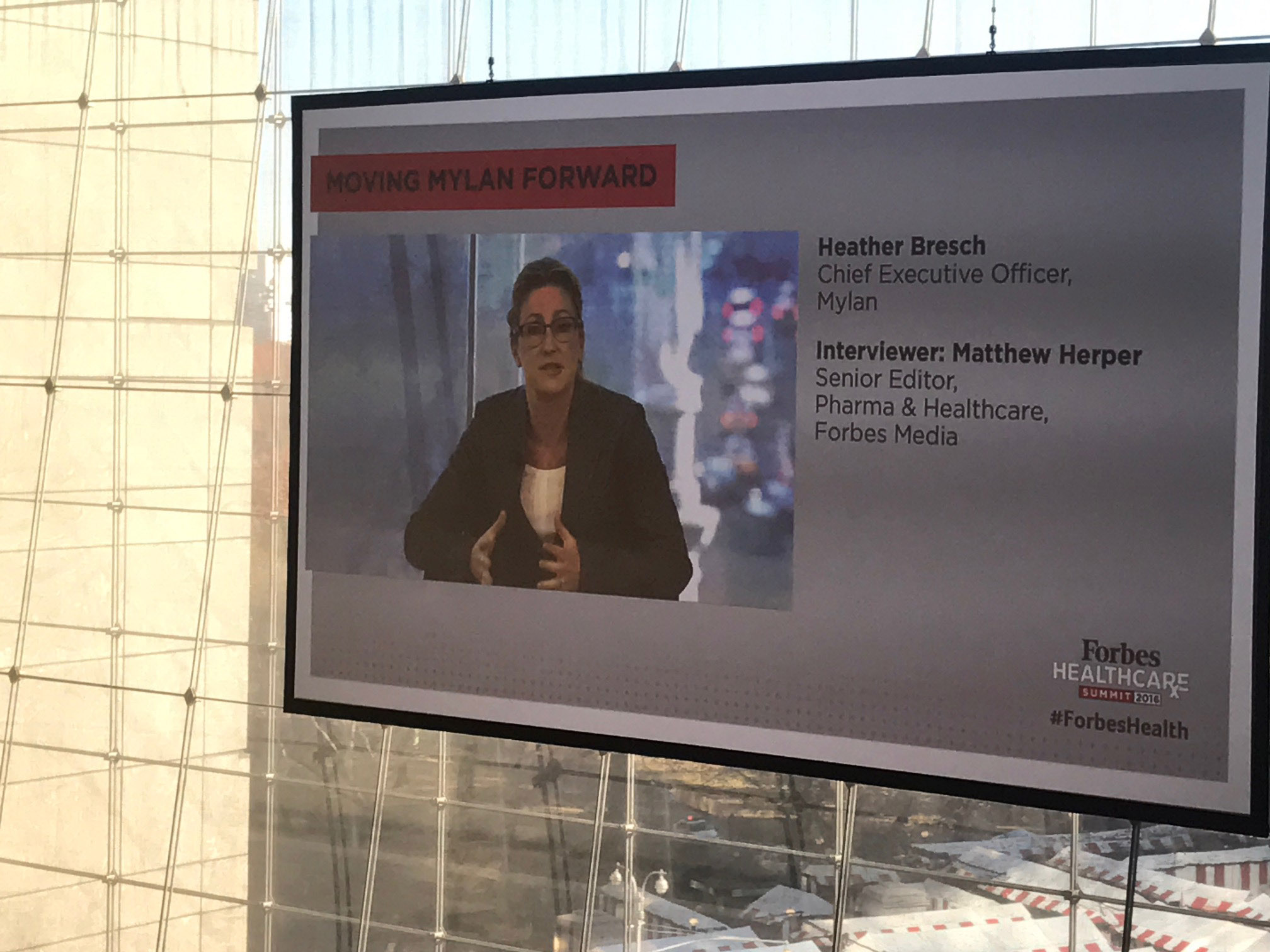
Heather Bresch addressing the audience at the Forbes Healthcare Summit. Source: Ryan Bushey/Advantage Business Media
Heather Bresch, the chief executive officer of embattled pharmaceutical company, Mylan, joined the fifth annual Forbes Healthcare conference to talk about the fallout from the EpiPen pricing controversy.
Matthew Herper, the moderator of the session and senior editor at Forbes, kicked things off by immediately asking why the company decided to implement these price hikes.
The firm came under scrutiny in August 2016 after customers and members of the medical community noticed the price for the life-saving medication had drastically risen over 400 percent in 10 years. The wholesale price for a two pack of these devices was an estimated $57 in 2006 while a two-pack of these products now cost about $600.
Bresch told the audience her company took full responsibility for raising the cost of these injectors, but added that these price increases were warranted based on the money Mylan invested in the EpiPen.
Herper asked what specific value was added to these products after Mylan acquired them in 2007, which prompted Bresch to present two versions of the EpiPen on stage to illustrate how the pen has evolved over time. She explained the pen in its initial form confused patients making it difficult to operate leading to accidental sticks whereas the latest iteration was safer and more ergonomic.
Plus, the CEO elaborated that Mylan spent over $1 billion implementing lobbying efforts to increase access to EpiPens and awareness regarding severe allergic reactions noting the company has been able to reach 80 percent more patients since acquiring the EpiPen in 2007, according to Business Insider.
Still, Herper asked why Bresch didn’t see this potential backlash coming after the consistent uptick in costs in this time period.
“We got a lot of things right, but we got a lot of things wrong,” she responded.
Essentially, Bresch argued that this situation could provide an opportunity to promote more transparency when it comes to drug pricing to help consumers make more informed decisions.
There’s a lack of understanding of where that full list… [price]…goes and how it is divided in the system,” Bresch told the audience. “The pharmaceutical system was not built on the idea of consumer engagement.”
She continued saying the pricing system hasn’t changed much over the past 25 years with discounts and rebates not keeping up with changing trends either.
The 20-minute interview concluded with Herper opening it up to questions from the audience. One attendee pointed out that Mylan has done good work in providing access to affordable HIV medications, but then asked why the company ruined that good will with EpiPen debacle.
“We’re not the company that bought a product and raised the price overnight,” Bresch replied by noting that Mylan shouldn’t be defined by the EpiPen controversy, wrote Forbes.
Filed Under: Drug Discovery




